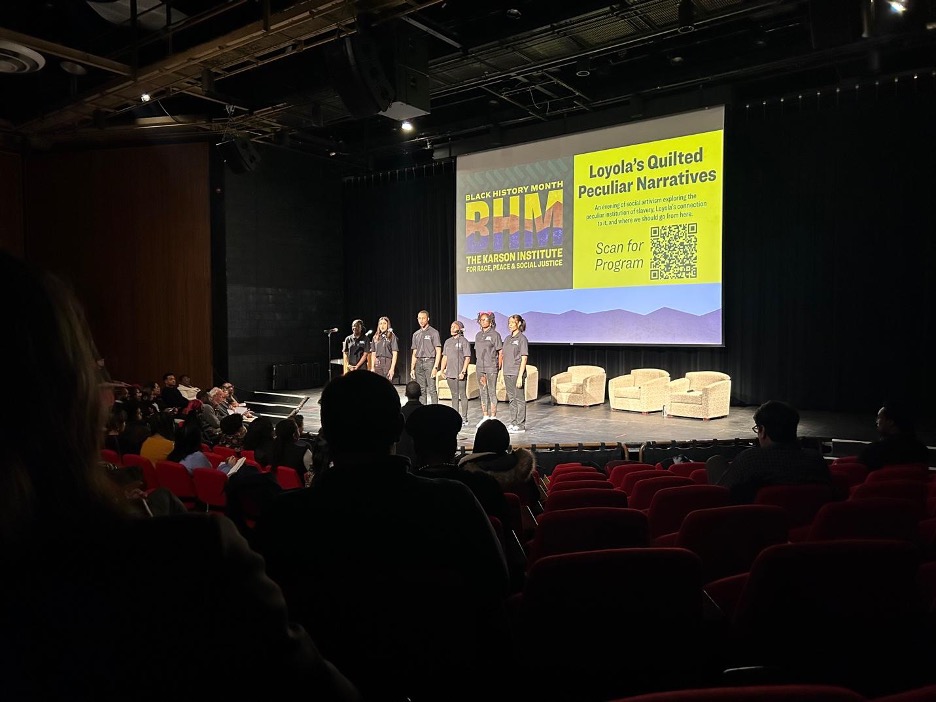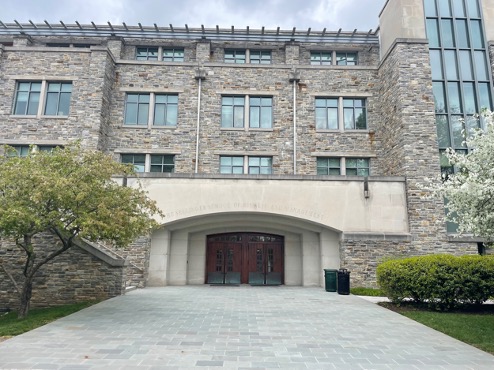The Karson Institute for Race, Peace, & Social Justice hosted a discussion on Loyola’s Quilted Peculiar Narratives following the release of the report documenting Loyola’s historic connections to slavery. Described as “an evening of social arivism exploring the peculiar institution of slavery, Loyola’s connection to it, and where we should go from here,” students and members of the community gathered in McManus Theatre in the closing of Black History Month to reflect on the impact of slavery on Loyola and on life as we know it.
“Quilted Peculiar Narratives” refers to how slavery, the peculiar, is interwoven into the rich history of Loyola.
The focus of the evening was the discussion moderated by Communications professor Dr. Karsonya Wise Whitehead, the Founder and Executive Director of the Karson Institute. Throughout the night, the discussion was intersected by readings from Savoy Adams ’24 and Mariam Fofana ’26, who read from “The 1619 Project,” a book of essays and poetry documenting the impact of the first slaves, as well as performances by Loyola’s Chosen Generation Gospel Choir.
Dr. Rodney Parker, Loyola’s chief Equity and Inclusion Officer, welcomed everyone for coming, and Loyola professors Fr. Tim Brown and Fr. Greg Chisholm gave speeches on the religious implications of the evening.
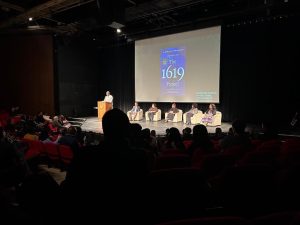
“This is a moment in time. A new chapter in the history of Black Americans that reveals itself in our midst. This chapter presents a clearer view of the ways in which events and decisions made in the past are relevant to the experience of our present lives,” Dr. Chisolm said.
Dr. Whitehead then spoke about the history of slavery. She said that since the ramifications of slavery impacted white Americans, nobody wanted to do anything about it.
“Slavery is a part of the economic, social, and political history of America. It shows up in every word or deed, even if they don’t want it to,” she said. “And that’s what we’re here to explore tonight. How did the Jesuits participate in and benefit from this particular institution?”
The theme of the Jesuits’ involvement in slavery came up often during the discussion. Dr. John Kiess, associate professor of theology and the co-chair for Loyola’s task force on the slavery report, explained the importance of religion to early African-Americans who were enslaved and how Frederick Douglass distinguished between Christianity and slave holding.
“Although religion was profoundly distorted in the story of American slavery, among those who were enslaved, they reclaimed that religion. They synthesized it with the wisdom and riches of their own African traditions, and they created something new,” he said.
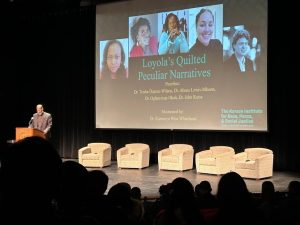
The panel, composed of professors from Loyola and Coppin State University, spoke freely about the contributions of enslaved people to the system of higher education, especially in Maryland. Ultimately, many universities likely wouldn’t exist without the labor of enslaved people. Dr. Teisha Dupree-Wilson, a Coppin State Professor, spoke about the importance of these contributions to colleges around the country.
“[In] the history of Loyola and Georgetown, selling enslaved persons was a way to generate income that would allow these universities to function. So, when you look at the economic dimension, there is a deep and abiding connection between the institution of slavery and American higher [education],” she said.
Later in the discussion, Dr. Whitehead invited a Karson Institute student worker to contribute. When asked about the next steps Loyola needs to take following the report, Jujaun Lawson ’26 said that its history needed to be integrated into the present. He added that there needed to be some kind of physical acknowledgement of the work of slave labor at Loyola. These two steps are intertwined in the theme of the discussion, quilted peculiar narratives.
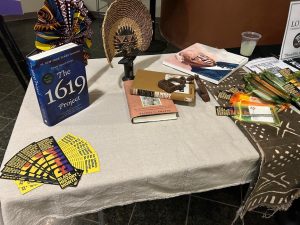
“I ask you when you leave the room to think, ‘what is the next stitch?’ You have spent generations smothering and belittling and removing narratives from our quotes,” he said. “What narrative should be stitched in our next quote?”
The event closed with some parting words from Kimberly Ellison-Taylor, a member of Loyola’s Board of Trustees, who urged the audience to think about the impact of Black history outside of the bounds of the event. She highlighted the power of resilience, even when navigating a world when Black people are still prejudiced against for the color of their skin.
“When we are removed from an uncomfortable inconvenient truth, it’s easier for us to deny that it never happened. And so, I am grateful for everyone who participated on the task force… because you uncovered a truth that needs to be stated,” Ellison-Taylor said.







































































































